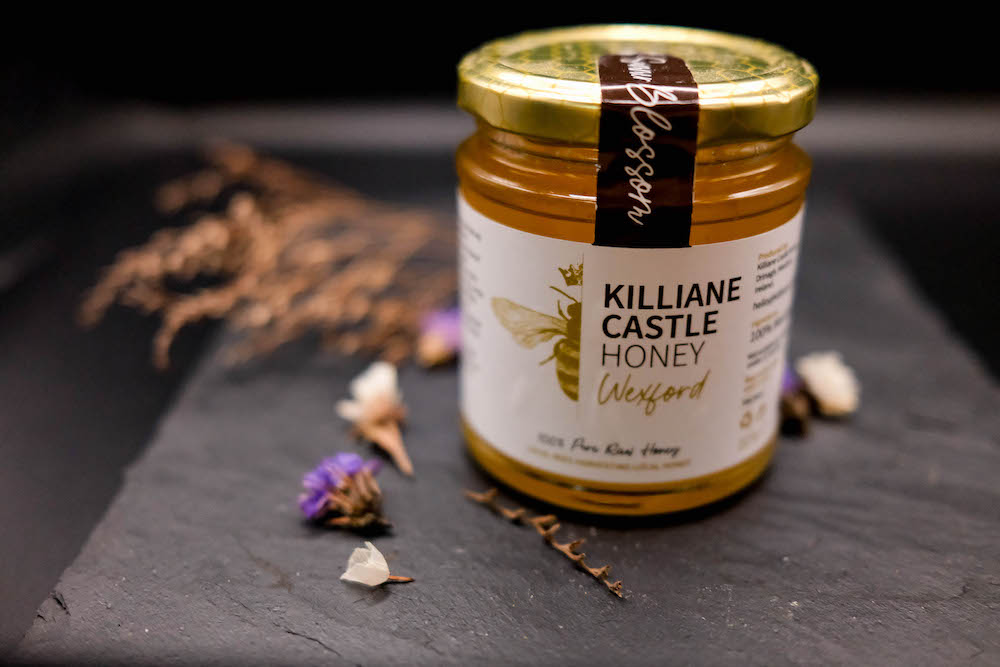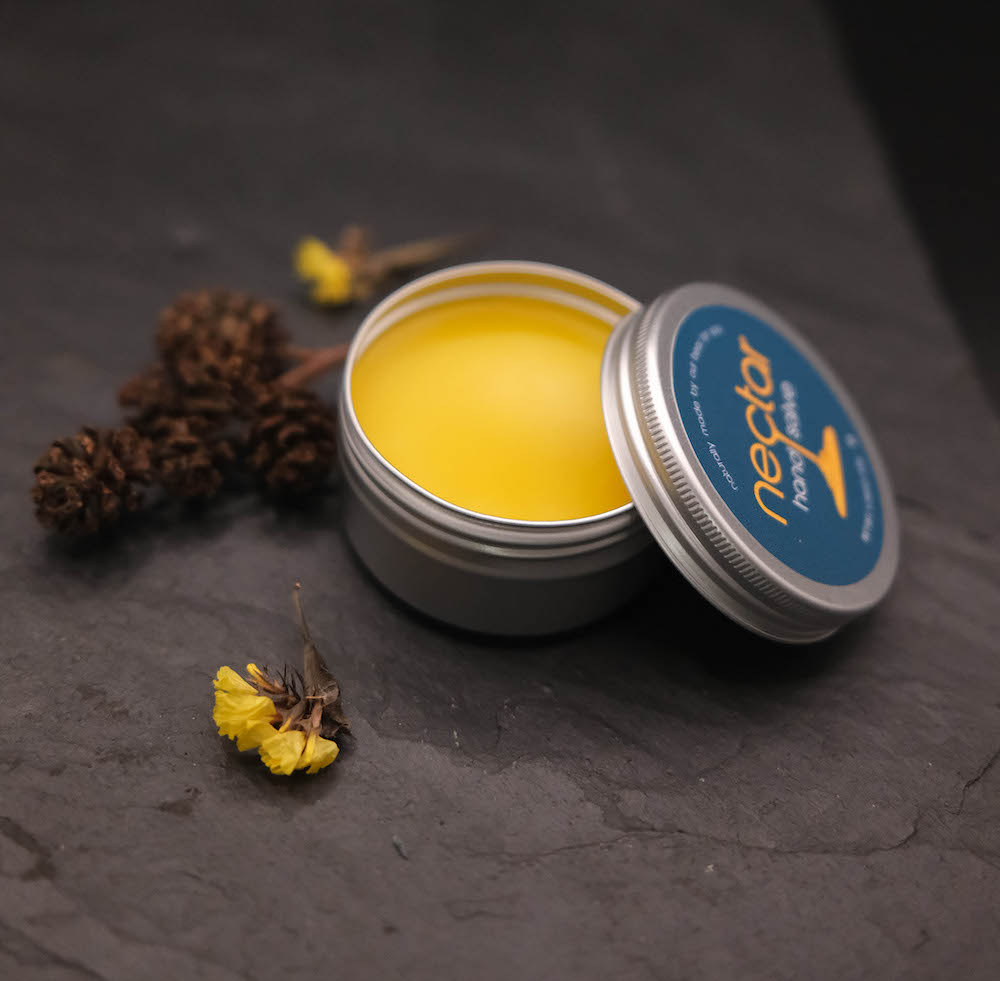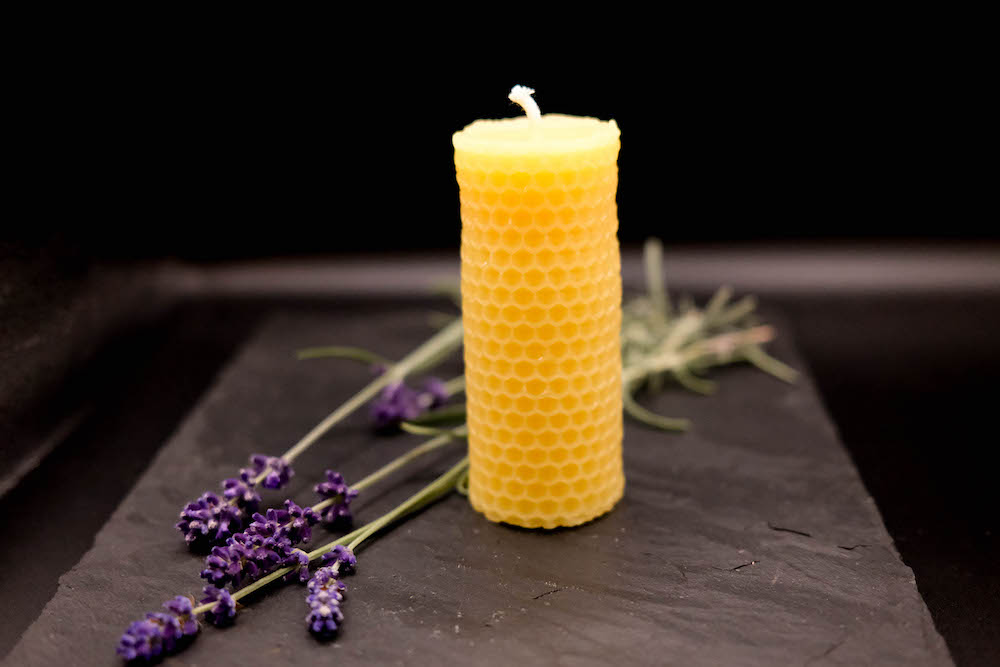OUR STORY
My name is Ian Mernagh and I am the Bee-keeper of Killiane Castle.
My grandfather bought the Castle & farmland in 1920. It was a labour of love, restoring the castle and the farmland around it, creating a fascinating and magical world that I was lucky enough to grow up in. Wild flowers and creeping ivy created homes and food for our native wild bees. As a boy I spent many summer days watching the busy little worker bees crawling in and out of the craggy stone walls in the outhouses and castle walls, often getting a little too close and receiving a sting in exchange for my curiosity!
When Marie and I married in 2006, we built our home here. Marie had grown up within a farming family in Kilkenny, and so we both shared the same passion for the land. As they arrived, our own three kids grew up climbing the same ancient walls and playing in the same fields and dodging the same busy bees in spring and summer!
While the bees on the farm were wild, just minutes away, my maternal grandfather, was a renowned bee-keeper. People would travel from miles around to buy his honey. Long before our current health and safety rules, people would bring a bucket for him to fill with honey!
In 2015 I purchased two hives and began to breed my own bees. Many beginner bee-keepers will purchase a colony from a more established bee-keeper. But from day one I wanted to become an expert. The best way to understand every element of honey production, means understanding every aspect of professional bee keeping. And so, as I built new hives, I began to breed my own bees. Creating new colonies from my first two original hives.
There were failures along the way, but there were successes too, and from those first two hives, there are now almost 60 production hives in various apiaries across the farm and the surrounding countryside.
By improving the genetics, careful breeding and with the utmost care, our bees are now over 98% pure Irish native honey bees. My Queens, I am proud to say, are well respected amongst Ireland’s bee keeping community and I now sell colonies to both beginners and my peers. And our son Paddy, a keen bee-keeper himself, will now take our honey making into the fourth generation!



Almost exactly 100 years after my grandfather bought Killiane
We began selling our honey in 2020, and from the start we struggled to keep up with demand!
Growing up in a castle, means history is with you all the time, its impossible to get away from and traditional bee keeping was always my intention; raw unfiltered and with nothing added or taken away. But this type of honey can crystalise over time, still delicious and actually a sign of really good honey, but a little annoying to some perhaps. Though others remark that it is visual proof that we only use honey from our own bees!
So drawing again on history there was another choice; creaming the honey.
In the 1930s it was discovered that by gently stirring over and over, the honey would cream, slowly turning to a soft white colour and a spread like consistency while tasting the same as it always did. Our creamed honey is now one of our best selling products and we recently won bronze in the 2023 National Blas na hÉireann awards !
Today we have a small but state of the art honey production facility, with machines doing the paddling for us, but it is still made in that same time honoured method.



Which leads us now to our newest range.
We looked at our honey, beeswax, propolis, pollen and royal jelly and again looked into the past for inspiration. During the medieval period, all these components were used for both medicinal uses and general skin care. Infusing oils with wild plants and blending it with beeswax to make salves and ointments.
The Royal Jelly our worker bees feed our Queen Bees and the wax used to build the honeycombs have always been prized for its medicinal properties. Propolis has also been used for millennia in an assortment of ways from beauty to medicinal. Could we come up with something? Working with a local historian, we experimented with some of these lost recipes.
Using wild medicinal plants growing on the farm, we replaced the animal fats used in older recipes with local rapeseed oil. The plants were dried and slow infused in the oil to extract their healing properties. We focused on plants used in skin care, wild rose and ribwort, or in Irish Slán Lús which translates as the “goodbye plant”
Beeswax is a truly remarkable natural product, its anti-allergenic, anti-inflammatory, anti-oxidant, anti-bacterial and germicidal.
And while most people know how good honey is for a sore throat you may be surprised to hear that honey is actually anti-inflammatory, an antioxidant and an antibacterial agent. And as such is simply fantastic for speeding up the healing process on skin. (we actually sell some of ours to horse breeders for this very purpose!) And has long been recommended by Doctors to speed up the healing of a post-operative wounds or to treat burns.
Propolis is used by bees to sterilise the cells in the honeycomb and is now known to be bactericidal, antiviral, and antifungal, meaning that it too has been used since ancient times for its medicinal benefits
Marie took to this side of the business with a passion and has been experimenting and working to create her own recipes for the salves which you will find on the online shop.
With our daughters Molly and Kate helping out, we experimented on ourselves and we gave them to friends and family. It appears that these ancient salves, perhaps once made in our own castle kitchen, don’t just work but in many cases worked better than modern ointments and creams. By adding an essential oil blend, unique to our products, with oils that hold their own medicinal properties, we believe we have created something very very special. Molly and Kate became experts themselves in making beeswax food wraps!
Join us on our journey into our second century at Killiane Castle
At the same time we learned how beeswax candles purified the air, burnt longer and certainly would have been a staple of the castle during long nights. Being the choice of the church and wealthier members of society! The castle was built around a truly ancient chapel indeed the name Killiane is derived from the church of St Leonard, did he make his own candles from the ancestors of the wild bees that still call the castle walls their home? A very romantic thought!
So join us on our journey into our second century at Killiane Castle, and nourish yourselves inside and out as we bring the past to you in its sweetest form, using the purest raw ingredients and methods that truly have stood the test of time!

